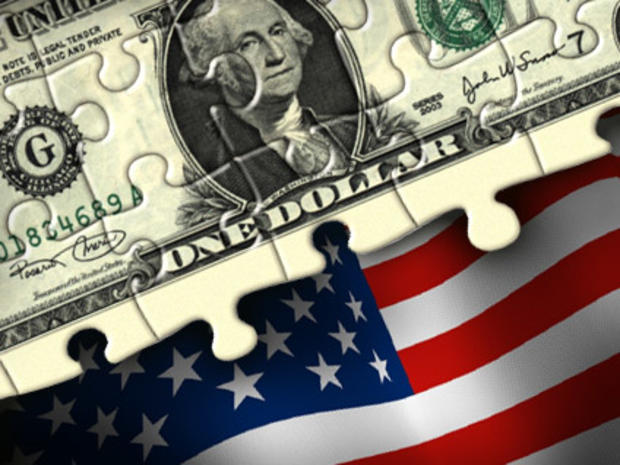Democrats propose new tax brackets for millionaires, billionaires
While Congress is primarily focused on cutting spending in the debate over reducing the federal budget deficit, some progressive lawmakers say it's time to start collecting more revenues from the wealthiest Americans.
Democratic Rep. Jan Schakowsky of Illinois unveiled a bill today to create new, higher tax brackets for Americans making more than $1 million a year.
"This isn't about punishment or revenge. It's about fairness," Schakowsky said. "It's about avoiding budget cuts that harm middle class families and those who aspire to it. We can choose to cut education, job creation and health care, or we can choose to ask those who can contribute more to do so."
Currently, the top tax bracket begins at an income of $373,000 per year; income above that level is taxed at 35 percent. Schakowsky contends this fails to distinguish between the "well off" and the superrich, such as a group of hedge fund managers whose average income last year topped $1 billion.
Schakowsky's bill, called the Fairness in Taxation Act, would tax income between $1 million and $10 million at a rate of 45 percent. Income between $10 and $20 million would be taxed at a rate of 46 percent, and income between $20 and $100 million would be taxed at 47 percent.
Income between $100 million and $1 billion would be taxed at a rate of 48 percent, and income over $1 billion would be taxed at 49 percent. For those making over $1 million a year, capital gains and dividends would also be taxed as income.
Schakowsky claims the bill could raise more than $78 billion for the government.
"A tax system where families earning several thousand dollars are taxed at the same rate as millionaires is unfair, and unsustainable," Rep. Donna Edwards (D-Md.), one of the bill's co-sponsors, said Wednesday. "At a time when House Republicans are demanding that working families, teachers, and firefighters bear the burden of reducing the deficit, millionaires should be required to contribute their fair share."
The bill's other co-sponsors include Reps. Raul Grijalva (D-Ariz.) and Rep. Keith Ellison (D-Minn.), the co-chairs of the Congressional Progressive Caucus; Reps. Jesse Jackson, Jr. (D-Ill.); Bob Filner (D-Calif.); Jerry Nadler (D-N.Y.); Steve Cohen (D-Tenn.); John Yarmuth (D-Ken.); and Peter DeFazio (D-Oregon).
Schakowsky said that it's time to make tax brackets fit the growing income disparity in the United States. According to analysis from the left-leaning Economic Policy Institute, the top 1 percent of Americans owns 34 percent of the nation's private net worth, while the bottom 90 percent owns just 29 percent.
Incomes for America's highest earners have grown faster than for the rest of the nation in recent years. With the nation struggling to reduce the deficit, progressives argue, high earners should have to contribute more.
Republicans last year blocked Democratic efforts to let the Bush-era tax cuts expire for the top 2 percent of income earners in America -- those making $250,000 or more. Democrats failed in part because some objected to increasing taxes on those making not much more than $250,000.
Congress ultimately passed a two-year extension of the Bush tax cuts, adding to the deficit and making some changes that actually slightly raised taxes for the poorest Americans.
Schakowsky was part of President Obama's 18-member bipartisan deficit commission, which searched for ways to reduce the deficit, though she voted against the final plan because she said it failed to address income disparity. The deficit commission plan, which included many elements, suggested reducing tax rates across the board while eliminating some tax deductions. It also called for modifying Social Security and Medicare.
A recent poll from CBS News' "60 Minutes" and Vanity Fair magazine found that between the choices of cutting defense spending, cutting Medicare, cutting Social Security, or raising taxes on the rich, 61 percent preferred raising taxes on the rich to balance the federal budget.
While the poor economy has resulted in relatively low income tax collections, conservatives argue that's no excuse to raise tax rates. Curtis Dubay of the Heritage Foundation writes that "tax reform is needed, but it's not because the tax code doesn't take enough of our money."
Too many deductions, credits and exemptions in the tax code are causing the government to "hemorrhage revenue" and creating a drag on the economy, Dubay argues.
Meanwhile, his colleague at the Heritage Foundation, David Weinberger, contends that income inequality does not matter -- because "equality of opportunity and equality of consumption have never been so ubiquitous."

